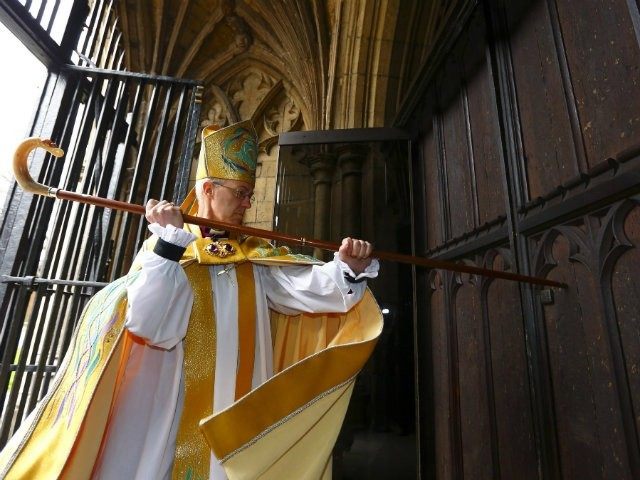Christians will officially be a minority group in the UK by 2050 as atheism and Islam continue to surge in popularity. According to new research, the proportion of people identifying as Christian will drop to 45.4 percent over the next 35 years, down from 59.5 percent at the last census in 2011.
The research, carried out by the US-based Pew Research Group, has charted the changing fortunes of religions globally. It found that, thanks to the soaring Islamic population, the number of Muslims and Christians will reach near parity by 2050, with Christians expected to make up 31.4 percent of the global population, whilst Muslims will account for 29.7 percent, up from 23 percent in 2010.
The rise of Islam is primarily due to the fact that the Muslim population is younger and has a higher fertility rate than the rest of the population. Consequently the number of Muslims is expected to surge by 73 percent over the four decades from 2010, vastly outstripping the projected growth in global population, which is expected to rise 35 percent.
Atheism and agnosticism are both on the wane worldwide and expected to drop in proportion from the current rate of 16.4 percent to 13.2 percent. But it is on the increase in western countries, and is expected to become the largest group in France, New Zealand and the Netherlands, amongst others, by 2050.
However, in the UK, the Pew’s figures somewhat disguise the true picture of religious adherence. The 2014 British Social Attitudes survey found that non-adherence had already relegated Christianity to a minority belief, with just 41.7 percent of those surveyed identifying as Christians, against 50.6 percent of the population saying that they have no religion, up from 47.7 percent the year before.
The findings of that study were released on the same day that Prime Minister David Cameron said that Britain was still a Christian country, prompting secularists to question his claim.
Andrew Copson, chief executive of the British Humanist Association said: “The truth of the matter is that we are a diverse society bringing together individuals and influences from Christian, other religious and non-religious backgrounds and that diversity is something that we should celebrate. Trying to label the whole nation with one religion fosters alienation and division.
“It is time that the Government wakes up to the policy implications of this and stops giving bishops privileged places in the House of Lords, stops funding ever more religious schools and requiring every school that is not religious to have a daily act of Christian collective worship.”
In addition, Church going across the Christian population is lower than mosque attendance amongst the Muslim population. Consequently, mosque attendance has been outstripping church attendance for over a decade: a 2004 study by Christian Research showed that around 930,000 Muslims attended a mosque at least once a week in 2004, compared to 916,000 regular church goers in the Church of England. By 2012, church attendance had further dropped to less than 800,000 people a week.
Commenting on the Pew Group’s findings, Prof Linda Woodhead, an expert in the sociology of religion based at Lancaster University, told the Telegraph: “I think the interesting thing is to compare Britain with comparator countries, other northern European countries with similar national churches.
“The same rate of de-Christianisation is not projected for Norway, Denmark, Sweden for example. So the national Church of England and Church of Scotland, seem to have been particularly effective in generating ‘no religion’.”

COMMENTS
Please let us know if you're having issues with commenting.